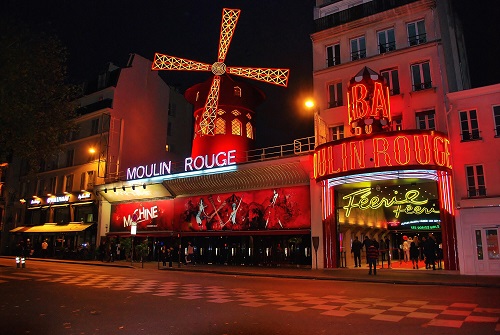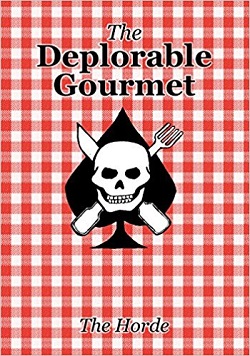Intermarkets' Privacy Policy
Support
Donate to Ace of Spades HQ!
Contact
Ace:aceofspadeshq at gee mail.com
Buck:
buck.throckmorton at protonmail.com
CBD:
cbd at cutjibnewsletter.com
joe mannix:
mannix2024 at proton.me
MisHum:
petmorons at gee mail.com
J.J. Sefton:
sefton at cutjibnewsletter.com
Recent Entries
Sea Lion Tamers Cafe
Quick Hits
"Thousands" Of US-Aligned Iraqi Kurds Stage Ground Invasion of Iran
Schmoll: Republicans Pull Dead Even with Democrats in Congressional Midterm Race, 50/50
"Big Tish" James, AG and Celebrated Mortage Fraudster, Orders NY Hospital to Resume Transitioning Children After It Quits the Grisly Business
Tim Walz, Keith Ellison Face Congressmen on the Rampant Fraud They Encouraged and Enabled
That Thing That Never Happens Happened Again
Stephen Colbert's Election Interference Stunt/Hoax Works as the Democrat Establishment Fights Dirty to Block a Proud Black Woman from Attaining Higher Office
Wednesday Morning Rant
Mid-Morning Art Thread
Quick Hits
"Thousands" Of US-Aligned Iraqi Kurds Stage Ground Invasion of Iran
Schmoll: Republicans Pull Dead Even with Democrats in Congressional Midterm Race, 50/50
"Big Tish" James, AG and Celebrated Mortage Fraudster, Orders NY Hospital to Resume Transitioning Children After It Quits the Grisly Business
Tim Walz, Keith Ellison Face Congressmen on the Rampant Fraud They Encouraged and Enabled
That Thing That Never Happens Happened Again
Stephen Colbert's Election Interference Stunt/Hoax Works as the Democrat Establishment Fights Dirty to Block a Proud Black Woman from Attaining Higher Office
Wednesday Morning Rant
Mid-Morning Art Thread
Absent Friends
Jay Guevara 2025
Jim Sunk New Dawn 2025
Jewells45 2025
Bandersnatch 2024
GnuBreed 2024
Captain Hate 2023
moon_over_vermont 2023
westminsterdogshow 2023
Ann Wilson(Empire1) 2022
Dave In Texas 2022
Jesse in D.C. 2022
OregonMuse 2022
redc1c4 2021
Tami 2021
Chavez the Hugo 2020
Ibguy 2020
Rickl 2019
Joffen 2014
Jim Sunk New Dawn 2025
Jewells45 2025
Bandersnatch 2024
GnuBreed 2024
Captain Hate 2023
moon_over_vermont 2023
westminsterdogshow 2023
Ann Wilson(Empire1) 2022
Dave In Texas 2022
Jesse in D.C. 2022
OregonMuse 2022
redc1c4 2021
Tami 2021
Chavez the Hugo 2020
Ibguy 2020
Rickl 2019
Joffen 2014
AoSHQ Writers Group
A site for members of the Horde to post their stories seeking beta readers, editing help, brainstorming, and story ideas. Also to share links to potential publishing outlets, writing help sites, and videos posting tips to get published.
Contact OrangeEnt for info:
maildrop62 at proton dot me
maildrop62 at proton dot me
Cutting The Cord And Email Security
Moron Meet-Ups
« Weird News Dump |
Main
| Saturday Gardening Thread: Winter by the Fire [KT] »
Serving your mid-day open thread needs


December 30, 2017
Thread before the Gardening Thread: Night Life [KT]

Interested in a visit Montmartre? I'm not particularly interested in visiting at this time, but the history of the place is fascinating. It was named for Saint Denis, who was beheaded by the Romans, way back in 250 AD.
According to Hilduin, Denis collected his head and carried it as far as the fontaine Saint-Denis (on modern impasse Girandon), then descended the north slope of the hill, where he died. Hilduin wrote that a church had been built "in the place formerly called Mont de Mars, and then, by a happy change, 'Mont des Martyrs'
A lot of drama and gypsum mining occurred on the hill before this:
This hill outside the city was settled because, during the nineteenth century, the emperor Napoleon III had given much of the prime land inside the city to his wealthy friends, who were charged with the task of developing it. The original inhabitants were forced to move to Paris's outskirts where they quickly established their own "town" sans the rules and regulations of the city.That's part of the reason why Montmartre quickly became a popular drinking area, and by the late eighteenth century, along with the liquor came a number of entertainment establishments that were less than reputable, like Moulin Rouge and Le Chat Noir (The Black Cat).
After the defeat of Napoleon III, Montmartre became the center of the short-lived Paris Commune.
But It's almost New Years Eve. Let's discuss music and dancing. Montmartre is, of course, the home of the famous French Can-can, originally danced by both sexes.
The music we know as "the Can-can" is actually "The Infernal Gallop" from Offenbach's "Orpheus in the Underworld":
The operetta is an irreverent parody and scathing satire on Gluck and his Orfeo ed Euridice and culminates in the risque Galop infernal ("Infernal Galop") that shocked some in the audience at the premiere. Other targets of satire, as would become typical in Offenbach's burlesques, are the stilted performances of classical drama at the Comedie-Francaise and the scandals in society and politics of the Second French Empire.
Bringing Offenbach's spirit closer to today, here's what some guy in Poland did with the piece:
Offenbach also wrote some music that wasn't satirical.
Europeans have a different sense of humor. This is what some of them do during an evening out. Is this sexist?
Are you going out for some fabulous nightlife on New Years Eve? Or are you staying home with a few drinks and snacks? There are some fine recipes herein. See the sidebar.

Have a great weekend and a great New Year.
Recent Comments
ShainS -- Algorithmic Racist, Semantic Ablationist, and Systematic Lobotomist [/b][/i][/s][/u]:
"The Senate has formally endorsed taking down Iran ..."
Miss Muffet: ""The Kurds are on the way!" About damn time! ..."
Piper: "Happy Wednesday evening, friends! Hope all is well ..."
Anna Puma: "If Jasmine and MTG shared an OF account, one would ..."
ShainS -- Algorithmic Racist, Semantic Ablationist, and Systematic Lobotomist [/b][/i][/s][/u]: "I think Paxton may be tabbed for a job in the DoJ ..."
whig: "107 MTG still thinks she is relevant? Posted by: ..."
Anna Puma: "Double post? Hopefully the rumours of Kurds wil ..."
Jukin the Deplorable and Totally Unserious: "58 You just know that Crockett and MTG are going t ..."
Braenyard - some Absent Friends are more equal than others _: "101 I love the thick black hair that is common on ..."
Bertram Cabot, Jr.: "The Kurds are on the way! ..."
Anna Puma: "MTG still thinks she is relevant? ..."
Anna Puma: "MTG still thinks she is relevant? ..."
Miss Muffet: ""The Kurds are on the way!" About damn time! ..."
Piper: "Happy Wednesday evening, friends! Hope all is well ..."
Anna Puma: "If Jasmine and MTG shared an OF account, one would ..."
ShainS -- Algorithmic Racist, Semantic Ablationist, and Systematic Lobotomist [/b][/i][/s][/u]: "I think Paxton may be tabbed for a job in the DoJ ..."
whig: "107 MTG still thinks she is relevant? Posted by: ..."
Anna Puma: "Double post? Hopefully the rumours of Kurds wil ..."
Jukin the Deplorable and Totally Unserious: "58 You just know that Crockett and MTG are going t ..."
Braenyard - some Absent Friends are more equal than others _: "101 I love the thick black hair that is common on ..."
Bertram Cabot, Jr.: "The Kurds are on the way! ..."
Anna Puma: "MTG still thinks she is relevant? ..."
Anna Puma: "MTG still thinks she is relevant? ..."
Recent Entries
Sea Lion Tamers Cafe
Quick Hits
"Thousands" Of US-Aligned Iraqi Kurds Stage Ground Invasion of Iran
Schmoll: Republicans Pull Dead Even with Democrats in Congressional Midterm Race, 50/50
"Big Tish" James, AG and Celebrated Mortage Fraudster, Orders NY Hospital to Resume Transitioning Children After It Quits the Grisly Business
Tim Walz, Keith Ellison Face Congressmen on the Rampant Fraud They Encouraged and Enabled
That Thing That Never Happens Happened Again
Stephen Colbert's Election Interference Stunt/Hoax Works as the Democrat Establishment Fights Dirty to Block a Proud Black Woman from Attaining Higher Office
Wednesday Morning Rant
Mid-Morning Art Thread
Quick Hits
"Thousands" Of US-Aligned Iraqi Kurds Stage Ground Invasion of Iran
Schmoll: Republicans Pull Dead Even with Democrats in Congressional Midterm Race, 50/50
"Big Tish" James, AG and Celebrated Mortage Fraudster, Orders NY Hospital to Resume Transitioning Children After It Quits the Grisly Business
Tim Walz, Keith Ellison Face Congressmen on the Rampant Fraud They Encouraged and Enabled
That Thing That Never Happens Happened Again
Stephen Colbert's Election Interference Stunt/Hoax Works as the Democrat Establishment Fights Dirty to Block a Proud Black Woman from Attaining Higher Office
Wednesday Morning Rant
Mid-Morning Art Thread
Search
Polls! Polls! Polls!
Frequently Asked Questions
The (Almost) Complete Paul Anka Integrity Kick
Primary Document: The Audio
Paul Anka Haiku Contest Announcement
Integrity SAT's: Entrance Exam for Paul Anka's Band
AllahPundit's Paul Anka 45's Collection
AnkaPundit: Paul Anka Takes Over the Site for a Weekend (Continues through to Monday's postings)
George Bush Slices Don Rumsfeld Like an F*ckin' Hammer
Paul Anka Haiku Contest Announcement
Integrity SAT's: Entrance Exam for Paul Anka's Band
AllahPundit's Paul Anka 45's Collection
AnkaPundit: Paul Anka Takes Over the Site for a Weekend (Continues through to Monday's postings)
George Bush Slices Don Rumsfeld Like an F*ckin' Hammer
Top Top Tens
Democratic Forays into Erotica
New Shows On Gore's DNC/MTV Network
Nicknames for Potatoes, By People Who Really Hate Potatoes
Star Wars Euphemisms for Self-Abuse
Signs You're at an Iraqi "Wedding Party"
Signs Your Clown Has Gone Bad
Signs That You, Geroge Michael, Should Probably Just Give It Up
Signs of Hip-Hop Influence on John Kerry
NYT Headlines Spinning Bush's Jobs Boom
Things People Are More Likely to Say Than "Did You Hear What Al Franken Said Yesterday?"
Signs that Paul Krugman Has Lost His Frickin' Mind
All-Time Best NBA Players, According to Senator Robert Byrd
Other Bad Things About the Jews, According to the Koran
Signs That David Letterman Just Doesn't Care Anymore
Examples of Bob Kerrey's Insufferable Racial Jackassery
Signs Andy Rooney Is Going Senile
Other Judgments Dick Clarke Made About Condi Rice Based on Her Appearance
Collective Names for Groups of People
John Kerry's Other Vietnam Super-Pets
Cool Things About the XM8 Assault Rifle
Media-Approved Facts About the Democrat Spy
Changes to Make Christianity More "Inclusive"
Secret John Kerry Senatorial Accomplishments
John Edwards Campaign Excuses
John Kerry Pick-Up Lines
Changes Liberal Senator George Michell Will Make at Disney
Torments in Dog-Hell
Greatest Hitjobs
The Ace of Spades HQ Sex-for-Money Skankathon
A D&D Guide to the Democratic Candidates
Margaret Cho: Just Not Funny
More Margaret Cho Abuse
Margaret Cho: Still Not Funny
Iraqi Prisoner Claims He Was Raped... By Woman
Wonkette Announces "Morning Zoo" Format
John Kerry's "Plan" Causes Surrender of Moqtada al-Sadr's Militia
World Muslim Leaders Apologize for Nick Berg's Beheading
Michael Moore Goes on Lunchtime Manhattan Death-Spree
Milestone: Oliver Willis Posts 400th "Fake News Article" Referencing Britney Spears
Liberal Economists Rue a "New Decade of Greed"
Artificial Insouciance: Maureen Dowd's Word Processor Revolts Against Her Numbing Imbecility
Intelligence Officials Eye Blogs for Tips
They Done Found Us Out, Cletus: Intrepid Internet Detective Figures Out Our Master Plan
Shock: Josh Marshall Almost Mentions Sarin Discovery in Iraq
Leather-Clad Biker Freaks Terrorize Australian Town
When Clinton Was President, Torture Was Cool
What Wonkette Means When She Explains What Tina Brown Means
Wonkette's Stand-Up Act
Wankette HQ Gay-Rumors Du Jour
Here's What's Bugging Me: Goose and Slider
My Own Micah Wright Style Confession of Dishonesty
Outraged "Conservatives" React to the FMA
An On-Line Impression of Dennis Miller Having Sex with a Kodiak Bear
The Story the Rightwing Media Refuses to Report!
Our Lunch with David "Glengarry Glen Ross" Mamet
The House of Love: Paul Krugman
A Michael Moore Mystery (TM)
The Dowd-O-Matic!
Liberal Consistency and Other Myths
Kepler's Laws of Liberal Media Bias
John Kerry-- The Splunge! Candidate
"Divisive" Politics & "Attacks on Patriotism" (very long)
The Donkey ("The Raven" parody)

